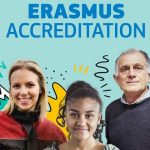A GUIDE TO EPALE- ELECTRONIC PALTFORM FOR ADULT LEARNING IN EUROPE
If your organization participates in European projects or is active in the field of adult education, you may have heard of the platform EPALE and wondered how you can use it for the development and sustainability of your work. In this article we will explain not only why you should be using it, but we will also offer you a short guide on how to do so.
REASONS TO USE EPALE
- It will keep you up to date with the latest news of Erasmus Plus and the adult education field in general.
- You can expand your network and find potential partners for projects that you would like to implement.
- It is a source of information and resources that you can make use when working with adults.
- It can constitute a platform in which you can promote your actions and find stakeholders and funding.
There is no place like EPALE to learn and exchange ideas with other professional institutions, whether this is through the resources they already have available, the news feed or the interactive sections.
HOW CAN I FIND ALL THIS INFORMATION?
Here is a division of the different sections according to the potential use for you and your organization:
- “Blog”, “News” and “Events” provide information on the advancements that adult education research and practice are having, as well as updates on the Erasmus Plus program, like approaching deadlines or webinars.
- “Community stories” is where best practices and success stories are shared. These can be a source of inspiration and help you improve your own actions.
- “Community of practice” and “discussions” are the best places to exchange ideas and questions with other members, pushing knowledge forward. These are open to the public, which means that you will likely already find the answers to your doubts through others that asked it before you.
- “Partner search” and “organizations” may become a useful tool to find partners to collaborate.
- “Community of European VET practitioners”. These are private collaborative spaces, so you must be approved access before joining and participating in the discussions and activities.
- “Erasmus space”. Convenient for those specifically interested in Erasmus Plus. It is appropriate for disseminating your projects, finding participants and partners, etc.
- MOOCs and other resources can be used as learning materials for workers in the field.
WHY NOW AND NOT LATER?
The second round of calls of the Erasmus Plus program is approaching. October and November are packed with deadlines for both KA1 and KA2 projects.
Specifically, this 5th October deadline is effective for:
- Mobility of young people (KA152-YOU)
- Mobility of youth workers (KA153-YOU)
- Youth participation activities (KA154-YOU)
- Short-term projects for mobility of learners and staff in adult education (KA122-ADU)
The 3rd October deadline is for the following list of projects:
- Small-scale partnerships in adult education (KA210-ADU)
- Small-scale partnerships in school education (KA210-SCH)
- Small-scale partnerships in vocational education and training (KA210-VET)
- Small-scale partnerships in youth (KA210-YOU)
- Cooperation partnerships in youth (KA220-YOU)
If you have struggled to get applications approved in the past, EPALE could become the tool that changes the tables around. Start by reading recent news and the most interesting resources; this will give you an idea of what the European Commission is looking to fund and, therefore, on what your projects should focus on. Communicate then with other members of the community to find the appropriate partners and ask for the support and advice of more experienced organizations. In the end, you will find yourself with a top application that cannot be rejected.
Interested in becoming a partner to one of our projects? Click here.


